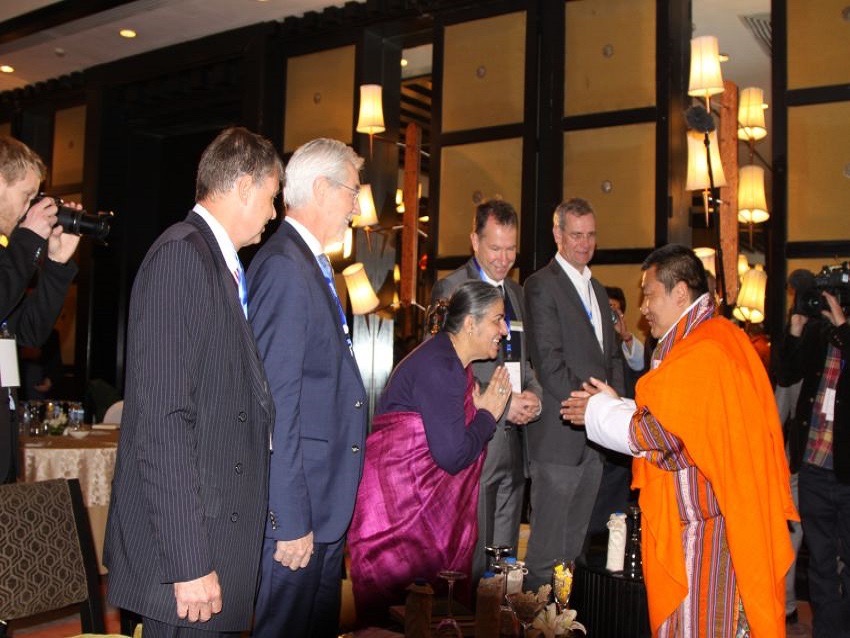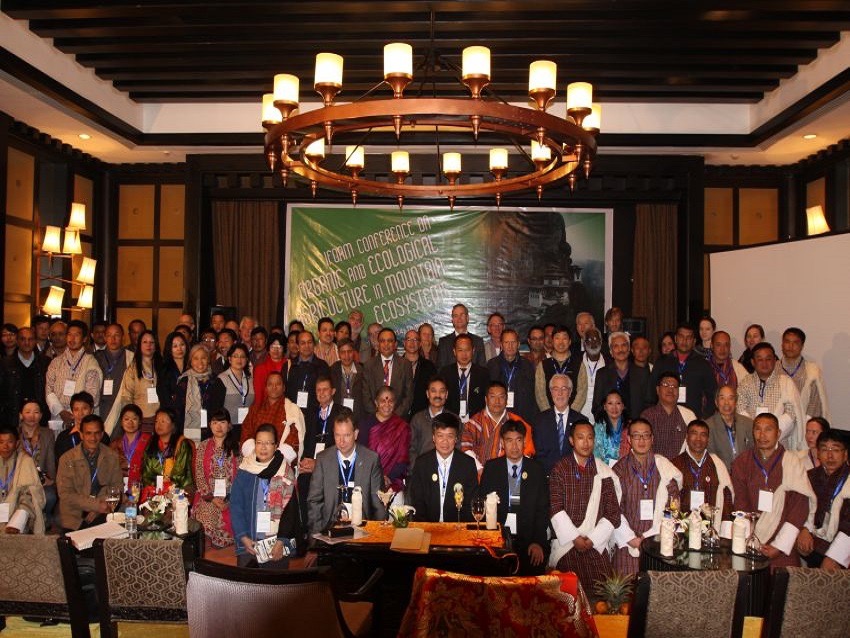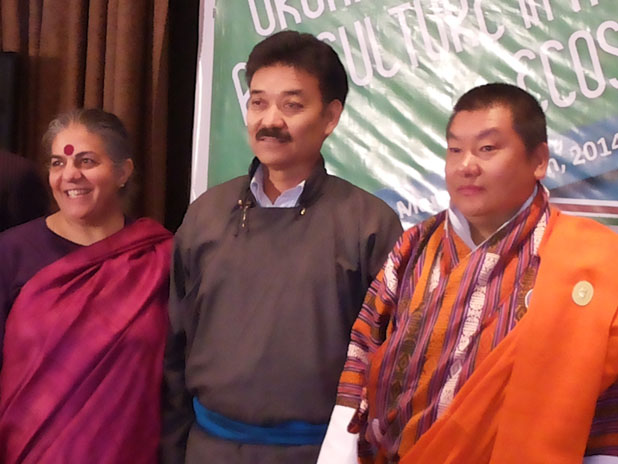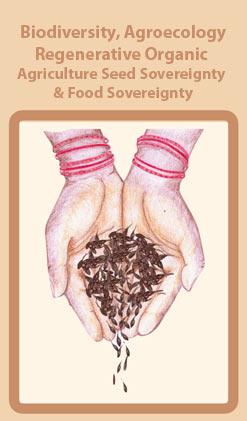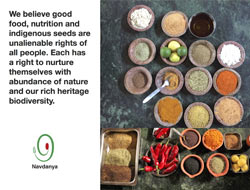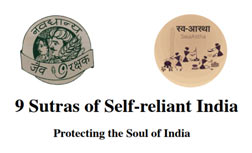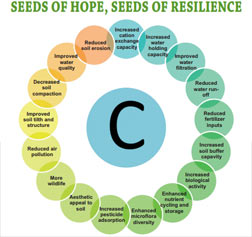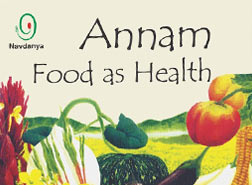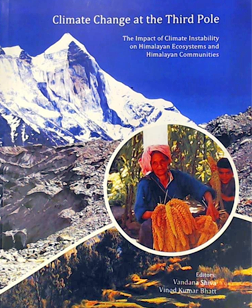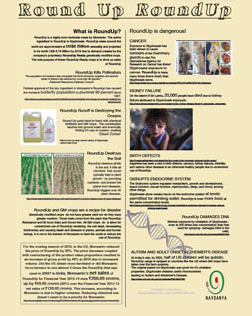The Thimphu Declaration
MEDIA RELEASE
Ecological Organic Agriculture in Mountain Agro-Ecosystems: Leading the transformation
Preamble:
Experts, including farmers, scientists, groups involved in value chains and representatives from governments, international organizations and development agencies from mountain systems in every arable continent joined forces at the International Conference on Ecological Organic Agriculture in Mountain Ecosystems in Thimphu, Bhutan March 5th to 8th, 2014 to develop an action plan for the transition of agricultural and food systems.
Building on the Bhutanese Government’s commitment to make a transition to 100% ecological organic agriculture guided by the philosophy of Gross National Happiness (GNH), the conference has developed an action plan for the world’s mountain regions based on the recognition that:
• The chemical based agriculture and food system is ecologically and economically harmful. It contributes to half the greenhouse gases that accelerate climate change and this, in turn, further constrains food production. It uproots millions of people from rural areas and pushes them into urban poverty. It creates health problems that are bankrupting communities and national health systems. It leads to the erosion of soil and the loss of biodiversity, and aggravates social injustice and conflicts. Despite an over production of commodities, one seventh of the population of the world remains hungry, malnourished and poor and a similar proportion is affected by diseases linked to unhealthy foods. Chemical based agriculture has clearly failed to fulfil its promise of providing food and nourishment for all. There is an urgent need for a transformation towards the only possible alternative that addresses these problems – ecological organic agriculture.
• The existing agriculture and food system contravenes the principles and guidelines of GNH. There is need to build an agricultural and food system that is aligned with these principles and guidelines. This is necessary to avoid the continued exploitation of human and natural resources; the degradation of land and water bodies; the destruction of indigenous knowledge, biodiversity and cultures and the disempowerment of smallholder farming communities.
The Paradigm Change
Overwhelming evidence from key agencies of the UN, including UNEP, UNCTAD, ILO, FAO, UNGA, the Interagency IAASTD Report, the Special Rapporteur to the UN on the Right to Food, as well as numerous peer reviewed scientific studies acknowledge the role and importance of ecological small-scale family farming for food and nutrition security, employment generation, environmental, social and economic wealth, peace and security.
The Rio+20 Declaration, “the Future we Want”, reiterated the main conclusions of the IAASTD Report on the need for a transformation of the agriculture and food system as well as the need to carry out national assessments that will inform new agricultural and food system policies that address the main shortcomings of the present systems and lay out the ground for the paradigm change.
Furthermore, this International Year of Family Farming focuses the world’s attention on the importance of small family farms in providing the bulk of the world’s food, nutrition and the need to provide support to them.
Based on evidence from the best knowledge, science, technology and practices, it has been shown that ecological organic agriculture systems, informed by the science of agroecology can achieve the multiple goals of sustainable development. These include resilience to climate change and volatile markets, improving the quality of our food supply and environmental, social and economic health and increasing livelihood and job security. The agriculture of the future needs to be multifunctional and to address the three dimensions of sustainable development (social, ecological, economic) as also reiterated in the Rio+20 Declaration.
The new paradigm will also address the transition from “feeding” to “nourishing” people, and entails a shift from thinking in terms of yield per ha of single commodities in monocultures to total nutrition per ha in biodiverse ecological organic systems and from empty calories to balanced nutrition.
The solutions to the multiple crises lie in smallholder family farms. These are, by definition, multifunctional and have been shown to be more productive, both by unit area and at farm level. Mountain ecosystems are perfectly suited for ecological organic agriculture to fulfill the needs of the present and future generations but are also the most vulnerable to ecological and economic disruption from chemically-based farming.
Implementing the paradigm change:
The Thimphu conference therefore calls for action from people, governments, development partners, the knowledge, science and technology communities and the private sector to:
• Ground food and agriculture systems on the principles of happiness, well-being and quality of life.
• Ensure the universal right to food, e.g. access to food for all, at all times, by dealing with inequalities and improving distribution. This will involve shifting the value chain’s current emphasis on export and by placing the kitchen table and local food sovereignty centre stage. This implies achieving an appropriate balance between imports, exports and local markets and nurturing values that promote health, nutrition and sustainable livelihoods.
• Place small family agriculture, food and nutritional security and food quality at the center of the post 2015 sustainable development agenda.
• Carry out national multi-stakeholder assessments of agri-food systems as the basis for informing new policies and trajectories regarding investments in this transition process.
• Support the development of new partnerships within the mountain regions of the world (including the downstream regions) and between mountain ecosystems. These partnerships will facilitate and promote exchanges of information between farmers, researches, consumers and policy makers
• Set up a global fund to support this transition with a focus on education awareness, research and exchange
• Implement farmers’ rights and empower them by facilitating fair access to credit, education and required production inputs, particularly for women and the youth. Assure the rights of farmers to secure land tenure, food sovereignty, the right to
save and trade seeds and the customary use of the commons (forests, grazing lands, water etc)
• Promote the valuation of ecosystem functions and the true pricing of agricultural products by internalising externalities and reallocating subsidies.
• Push for commitments from governments and development partners for funds to support research and development for ecological organic agriculture and the associated paradigm change.
• We as participants commit ourselves to take united and collective action to make this transition to ecological organic food systems in mountain areas, and areas dependent on them.
Thimphu, March 8, 2014
